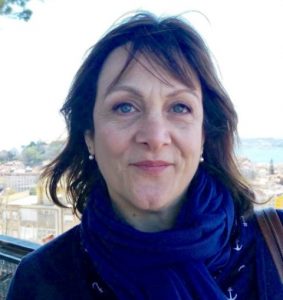
53rd MEDTROP will present social interesting subjects
This approach widens while looking at the disease and the patient, including different interest areas
13/08/2017
Looking to the needs of a society is determinant to solve its problems
The 53rd MEDTROP, despite being completely focused in academic-scientific goals, will present subjects of heavy social interest The event will count on the presence of the Forum of Social Movements of patients with neglected diseases presenting round tables with perspectives on global health with approaches of health in face of worldwide migration movements and refugees, and focus on answers to emergencies as epidemics and tragedies. Besides widening the discussion to access health information through the media and the difficulties to be in the media agenda.
In these such critical times the Country is facing, the acknowledgment of the media on issues that so toughly affect health, both qualifies the debate and increases pressure for Brazil to regain its leadership developing answers to epidemics, as happened in 2016 when we were example for the rest of the world responding to the HIV/AIDS epidemic. Another example was the emergence of Zika-virus; the responses that depended on the investigations which would lead to technical-scientific knowledge required to face the disease were fast and with major efficiency; regarding the approach towards the affected by the disease, the actions have been incomplete and dependent on deficient scenarios since always and in face of tragedies like this become more evident.
To know more about this matter, the Brazilian Society of Tropical Medicines Press advisory (BSTM Press) talked to the chair of the 53rd MEDTROP, Dr. Marcia Hueb. Find the full interview below.
BSTM: The insertion of these new perspectives evade from the traditional approaches of the previous BSTM conferences. Why and how did this idea appear?
Dr. Marcia Hueb: Actually, this approach was first inserted in the 2016 MEDTROP, which already counted on the presence of the Forum of Social Movements of Patients with Neglected Diseases. We are consolidating the Forum, but also bringing new discussions approaching global health in face of worldwide migration movements and the refugee’s issues, for example.
BSTM: Could other communities, besides the scientific, have their interests awaken when finding these new themes in the 2017 MEDTROP?
Dr. Marcia Hueb: Certainly. This approach widens the perspective when looking at the disease and the patient, including different social interest areas. It is the disease that comes within a transmission cycle and that depends on a multifactorial approach; it is the disease neglected in research and attention that has no solutions if not involved in different knowledge fields. Anyway, these are perspectives open for debate.
BSTM: When talking of widening the discussions for health information access by the media and the difficulties inserting in the media agenda, how will this theme be approached?
Dr. Marcia Hueb: We will have, for example, a round table with media agents, as journalists and communicators, who will discuss the relationship between the media as social health determinants. Moreover, there is, inclusive, a specific award for tropical journalists.
Interested media professionals and press advisors will have free access to this activity, with no registration required, just identification at the executive secretary. I understand there might be interest from those who work the health theme in the press. Today, many professionals advise commissions with decision power in public health policies and there are those who develop reports in the different media. This is, I believe, the experience brought by other people could guide different professionals.
BSTM: We talk about answers to emergencies as epidemics and tragedies, submerged in the worst political-economic crisis ever in Brazil. In your opinion, is Brazil walking backwards in these answers?
Dr. Marcia Hueb: It is hard to know. The need exists regardless of crisis, they are demands that rise for different causes. Looking at the needs of a society is determinant to solve its problems. This look needs many facets, englobing knowledge, need, the populations survival conditions and our power to respond – not always good enough. An example was the emergence of Zika-virus; the responses that depended on the investigations which would lead to technical-scientific knowledge required to face the disease were fast and with major efficiency; regarding the approach towards the affected by the disease, the actions have been incomplete and dependent on deficient scenarios since always and in face of tragedies like this become more evident. An example was the emergency of the disease caused by Zika-virus; the responses that.
BSTM: From your point of view, has Brazil put expertise aside to the multi-sector dialogue, the articulation of health with human rights and the ability to fulfill the principles of universality, justice and social participation?
Dr. Marcia Hueb: I believe what is leaned is never lost. We are walking in this direction, there is a collective conscience about the impossibility of remaining isolated seeking solutions of common interests, but the steps are short. We are still mostly, in separate chambers in society. Initiatives as these we are bringing to the MEDTROP help the collective discussion and encourage others to do the same. This is what we expect.
BSTM: What happens in the Brazilian scenario strengthens the argument that biomedical responses cannot replace social responses?
Dr. Marcia Hueb: These are complementary answers. Researches and researchers always seek the greater good, which is common good. The challenge is to make its results reach the health managers, and even more, influence their decisions. These decisions are part of the routine of health management, much has been done, but there is always much yet to do.…










